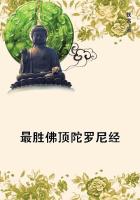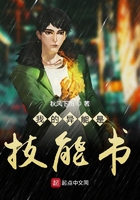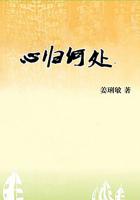Upon these assurances, Porsenna ceased from all acts of hostility, and the young girls went down to the river to bathe at that part where the winding of the bank formed a bay and made the waters stiller and quieter; and, seeing no guard, nor any one coming or going over, they were encouraged to swim over, notwithstanding the depth and violence of the stream. Some affirm that one of them, by name Cloelia, passing over on horseback, persuaded the rest to swim after; but, upon their safe arrival, presenting themselves to Poplicola, he neither praised nor approved their return, but was concerned lest he should appear less faithful than Porsenna, and this boldness in the maidens should argue treachery in the Romans; so that, apprehending them, he sent them back to Porsenna. But Tarquin's men, having intelligence of this, laid a strong ambuscade on the other side for those that conducted them; and while these were skirmishing together, Valeria, the daughter of Poplicola, rushed through the enemy, and fled, and with the assistance of three of her attendants made good her escape, whilst the rest were dangerously hedged in by the soldiers; but Aruns, Porsenna's son, upon tidings of it, hastened to their rescue, and, putting the enemy to flight, delivered the Romans. When Porsenna saw the maiden returned, demanding who was the author and adviser of the act, and understanding Cloelia to be the person, he looked on her with a cheerful and benignant countenance, and, commanding one of his horses to be brought, sumptuously adorned, made her a present of it.
This is produced as evidence by those who affirm that only Cloelia passed the river on horseback; those who deny it call it only the honour the Tuscan did to her courage; a figure, however, on horseback, stands in the Via Sacra, as you go to the Palatium, which some say is the statue of Cloelia, others of Valeria. Porsenna, thus reconciled to the Romans, gave them a fresh instance of his generosity, and commanded his soldiers to quit the camp merely with their arms, leaving their tents, full of corn and other stores, as a gift to the Romans. Hence, even down to our time, when there is a public sale of goods, they cry Porsenna's first, by way of perpetual commemoration of his kindness. There stood also, by the senate-house, a brazen statue of him, of plain and antique workmanship.
Afterwards, the Sabines, making incursions upon the Romans, Marcus Valerius, brother to Poplicola, was made consul, and with him Postumius Tubertus. Marcus, through the management of affairs by the conduct and direct assistance of Poplicola, obtained two great victories, in the latter of which he slew thirteen thousand Sabines without the loss of one Roman, and was honoured, as an accession to his triumph, with an house built in the Palatium at the public charge;and whereas the doors of other houses opened inward into the house, they made this to open outward into the street, to intimate their perpetual public recognition of his merit by thus continually making way for him. The same fashion in their doors the Greeks, they say, had of old universally, which appears from their comedies, where those that are going out make a noise at the door within, to give notice to those that pass by or stand near the door, that the opening the door into the street might occasion no surprisal.
The year after, Poplicola was made consul the fourth time, when a confederacy of the Sabines and Latins threatened a war; a superstitious fear also overran the city on the occasion of general miscarriages of their women, no single birth coming to its due time.
Poplicola, upon consultation of the Sibylline books, sacrificing to Pluto, and renewing certain games commanded by Apollo, restored the city to more cheerful assurance in the gods, and then prepared against the menaces of men. There were appearances of great preparation, and of a formidable confederacy. Amongst the Sabines there was one Appius Clausus, a man of a great wealth and strength of body, but most eminent for his high character and for his eloquence; yet, as is usually the fate of great men, he could not escape the envy of others, which was much occasioned by his dissuading the war, and seeming to promote the Roman interest, with a view, it is thought, to obtaining absolute power in his own country for himself. Knowing how welcome these reports would be to the multitude, and how offensive to the army and the abettors of the war, he was afraid to stand a trial, but, having a considerable body of friends and allies to assist him, raised a tumult amongst the Sabines, which delayed the war. Neither was Poplicola wanting, not only to understand the grounds of the sedition, but to promote and increase it, and he despatched emissaries with instructions to Clausus, that Poplicola was assured of his goodness and justice, and thought it indeed unworthy in any man, however injured, to seek revenge upon his fellow citizens; yet if he pleased, for his own security, to leave his enemies and come to Rome, he should be received, both in public and private, with the honour his merit deserved, and their own glory required. Appius, seriously weighing the matter, came to the conclusion that it was the best resource which necessity left him, and advising with his friends, and they inviting others in the same manner, he came to Rome, bringing five thousand families, with their wives and children; people of the quietest and steadiest temper of all the Sabines. Poplicola, informed of their approach, received them with all the kind offices of a friend, and admitted them at once to the franchise allotting to every one two acres of land by the river Anio, but to Clausus twenty-five acres, and gave him a place in the senate; a commencement of political power which he used so wisely, that he rose to the highest reputation, was very influential, and left the Claudian house behind him, inferior to none in Rome.















